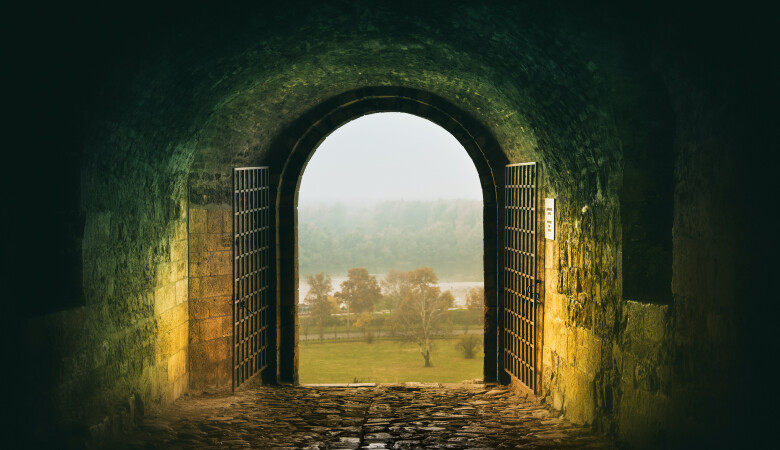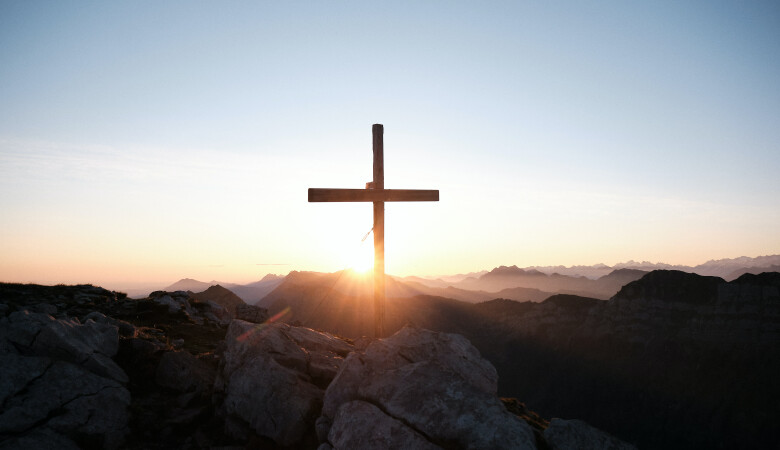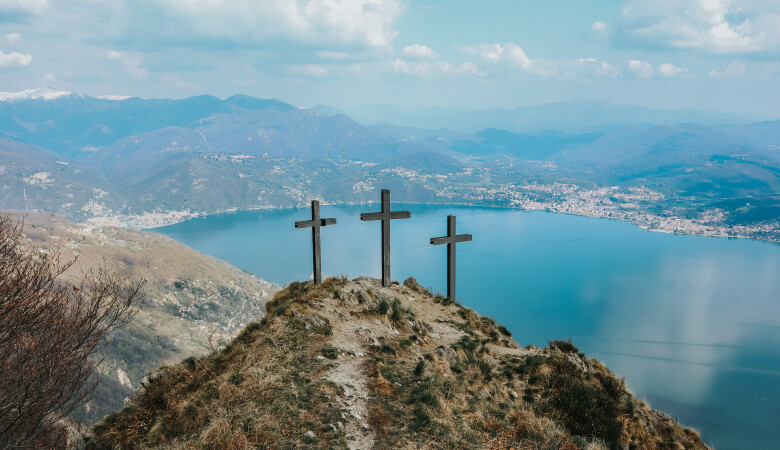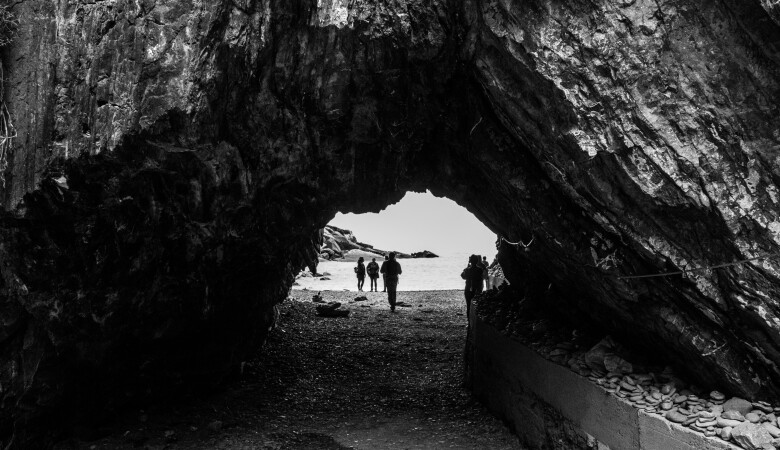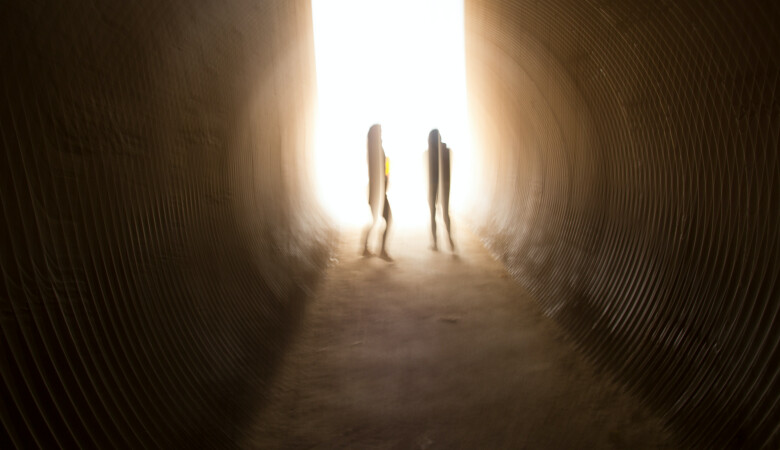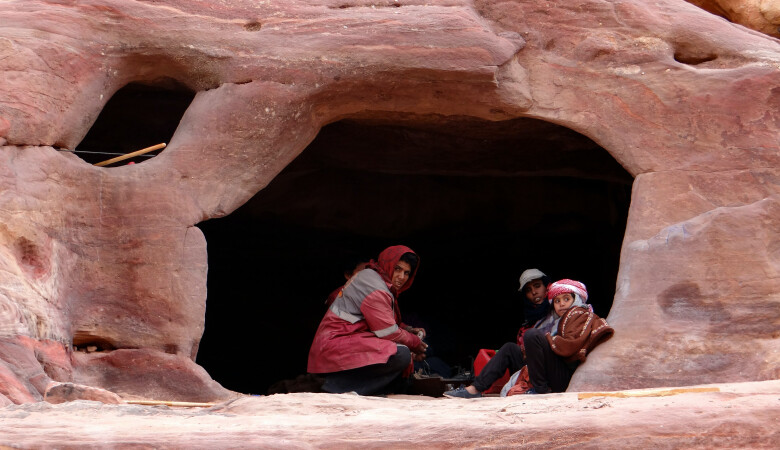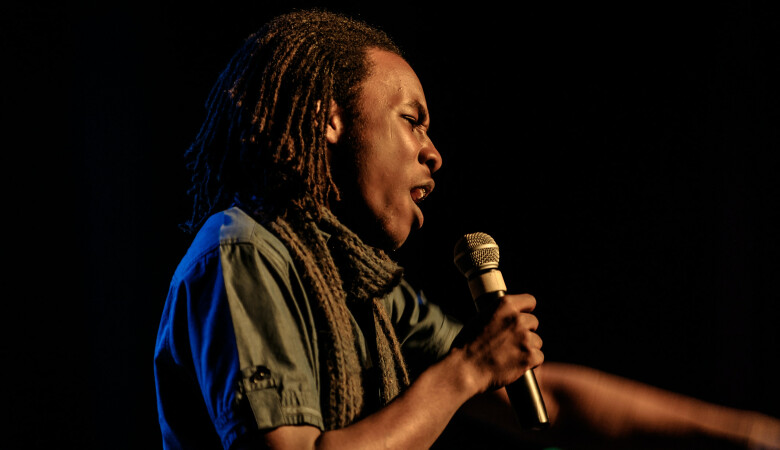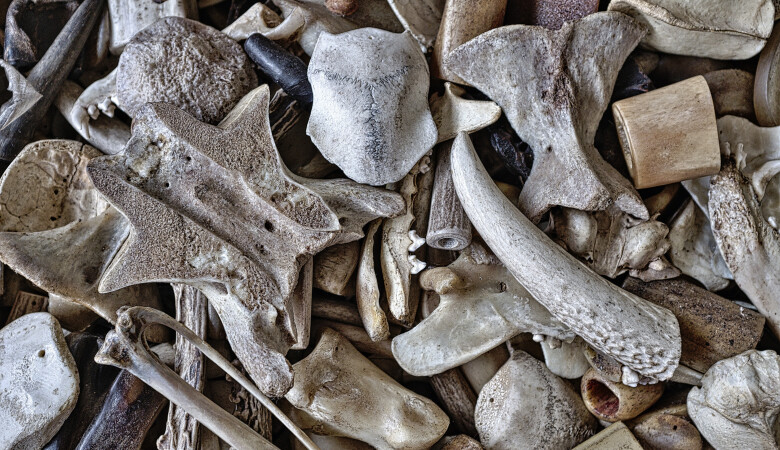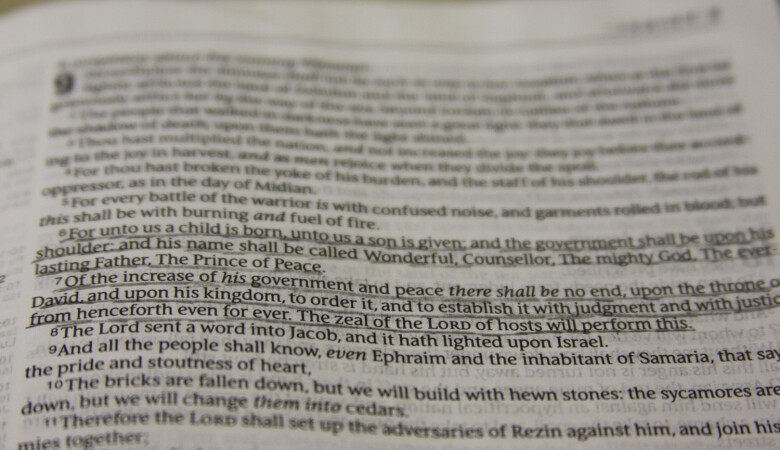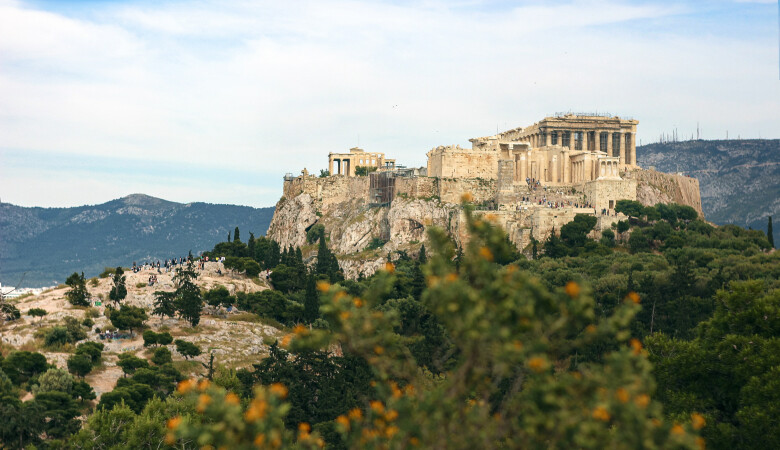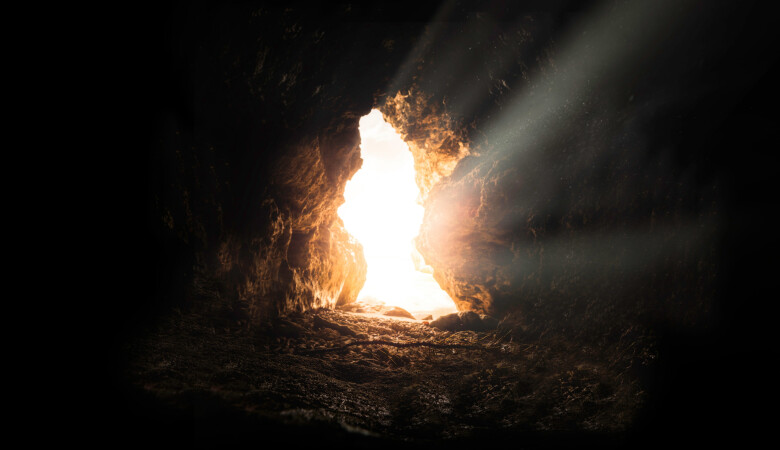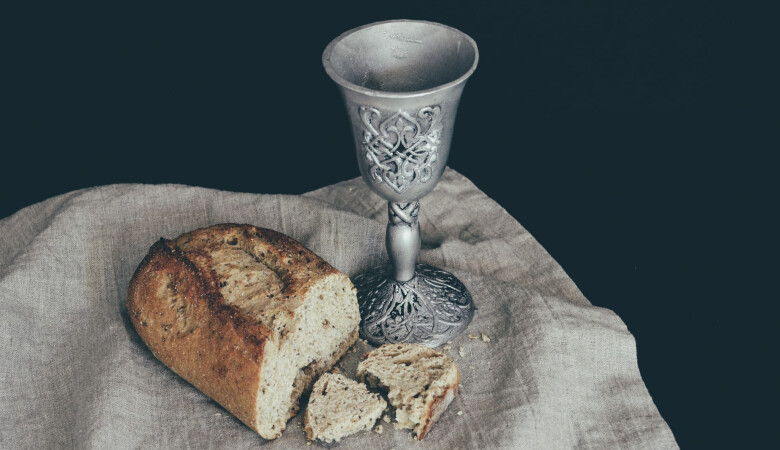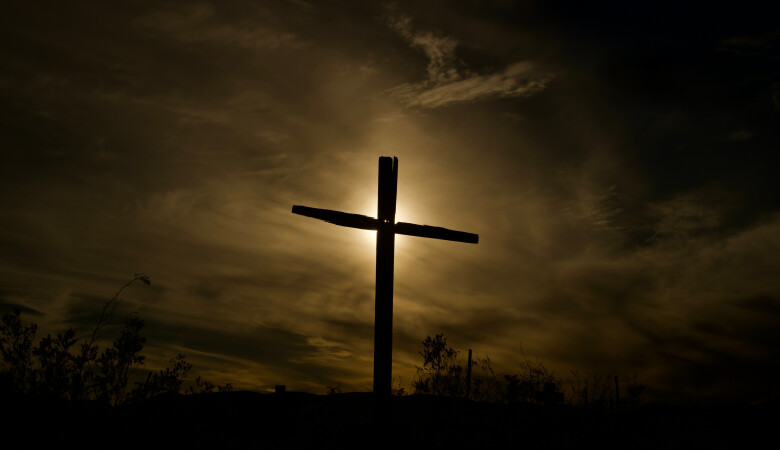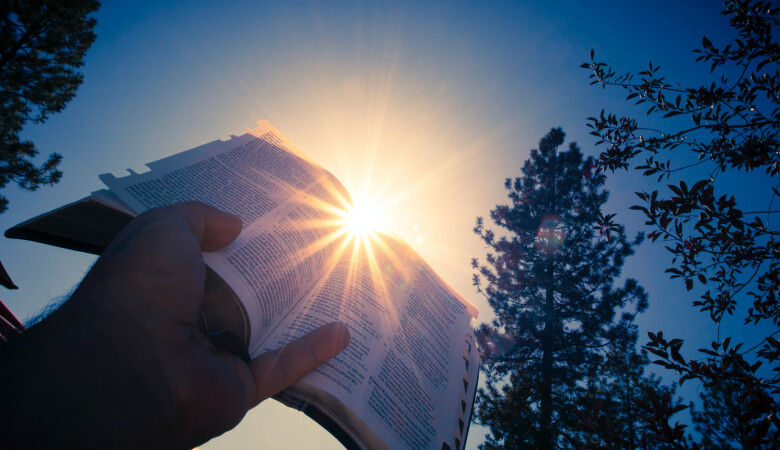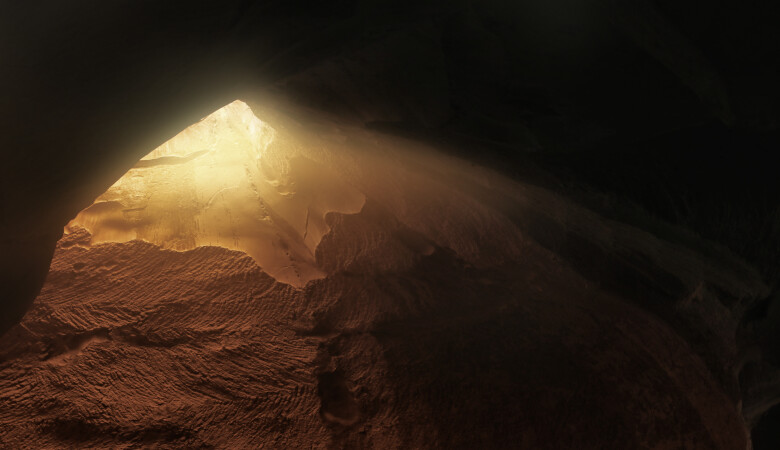Raised on the Last Day: The Great Hope of Easter
April 04, 2010 | Andy Davis
John 6:1-71
Resurrection of Christ
Pastor Andy Davis preaches an expository sermon on John 6. The main subject of the sermon is how we have hope that we will be raised on the last day by Christ.
- SERMON TRANSCRIPT -
We’re here this morning to celebrate the incredible victory of Christ over death, his glorious resurrection. We’re here to celebrate that he who shed his blood on the cross, whose lifeless body was taken down from that cross, wrapped up in strips of linen, with myrrh and aloes, he whose corpse was laid in a cave, a cold cave, a massive stone rolled in front of the entrance, this very one has come alive, on the third day, and sits at this present time at the right hand of God, the Father Almighty. We’re here to celebrate the victory of someone else, the triumph of someone else, the glory of someone else, of Jesus Christ. But you know, as I was thinking about it, at it’s root, all true Resurrection Day or Easter celebrations are really a celebration of our own future resurrection in him. The fact that Jesus has distributed widely abroad to every nation on earth, the fruits of his victory. It’s for us that he came. We are his prize. We are what he got by taking on a human body. Christ’s crowning achievement is that multitude greater than anyone could count, from every tribe and language and people and nation, that someday we will be standing in resurrection bodies around that throne worshiping him, in white robes, praising him for the victory, radiantly, shining like the sun in the kingdom of their Father. We are Christ’s resurrection victory. And so it’s right for us to celebrate what Christ did on our behalf and to look ahead to our own resurrection through him. Jesus said in John 14:19, ” Because I live, you also will live.” So we can extend this concept, “Because I was raised from the dead, you also will be raised from the dead. Because I will never die again, you also will never die again, once you have received that resurrection. Because I have a resurrection body, you will have a resurrection body. Because I live in the presence of the Father, you also will live in the presence of the Father.”
"We are Christ’s resurrection victory. "
And so we, today, celebrate Christ’s resurrection victory by looking ahead to our own resurrection victory. And no chapter in the Bible speaks so clearly of the certainty of Christ raising us from the dead as does John 6. So look there in your Bibles, if you would. Take your Bibles and look along with me. We’re going to be just unpacking the significance of a phrase that Jesus states four different times in John chapter 6. Four times Jesus states this phrase, “I will raise him up at the last day.” The last day is Judgment Day, and Jesus is plainly teaching here the bodily resurrection of anyone who believes in him. John chapter 6 teaches number one, the eternal plan of the Father for our own bodily resurrection. And number two, the giving of Christ’s physical body, his flesh and blood, to enable us to live forever. Number three, the absolute necessity of faith in Christ so that we can be raised from the dead. Number four, the complete inability of we sinners to come to Christ on our own. And number 5, the absolute power of God to bring us as sinners to Christ. And number 6, the absolute certainty of our final resurrection in him. So let’s dig into this marvelous chapter and just celebrate its glorious teachings.
I. Our Resurrection: Proclaimed by God the Son
First, our resurrection, as proclaimed by God the Son. Look at verses 39 and 40, it says, “ And this is the will of him who sent me, that I shall lose none of all that he has given me, but raise them up at the last day.” Verse 40, “For my Father’s will is that everyone who looks to the Son and believes in him shall have eternal life, and I will raise him up at the last day” Again, verse 44,” No one can come to me unless the Father who sent me draws him, and I will raise him up at the last day.” And then again in verse 54,” Whoever eats my flesh and drinks my blood has eternal life, and I will raise him up at the last day.” This is, for me, the most awesome promise in the Bible. I want you to feel the weight of that. I want you to feel the joy of that. He’s gonna raise us up at the last day.
This is really actually an odd chapter to be preaching on Easter Sunday, ‘cause it doesn’t mention Jesus’s resurrection at all. So you’re wondering why in the world are we doing this? I hope I’ve already explained that. Because Jesus’s resurrection is ours, and Jesus’s resurrection is the pattern of what he promises to do for us here. This is a thing, unfathomable and mysterious, worthy of mockery, I think, by many philosophers and scientists and atheist, unbelievers. Paul, when he was preaching on the resurrection of Christ from the dead and our future resurrection in him, on Mars Hill, in Athens surrounded by all these philosophers. It says in Acts 17:32, “When they heard about the resurrection of the dead, some of them sneered.” Perhaps you felt that sneer at different points of your life. There are some that sneer at the resurrection. “How can it be?” they say. We die. Our lifeless bodies shut down, our circulatory system no longer works, cells die. Corruption begins immediately, decay, the stench of death, as of bad meat on a hot summer day. The bodies are buried under the ground, worms are able to consume all but our skeletons. In some cases, the skeletons themselves are consumed in flames, like the sad victims of the 9/11 tragedy at the World Trade Center, 767s crashing into these buildings, 92 people on one flight, 65 on the other, their bodies entirely incinerated in the heat, nothing left. And yet Jesus is promising, here in this chapter, to raise them up on the final day, if they believed in him. How can it be, they say.
And the Bible teaches we will be raised to an eternal physical existence. Jesus’s resurrection, which we celebrate today, was a bodily resurrection. He said this to his disciples in Luke 24.”’Why are you troubled and why do doubts rise in your minds? Look at my hands and my feet. It is I myself! Touch me and see; a ghost does not have flesh and bones, as you see I have.’ When he had said this, he showed them his hands and feet. And while they still did not believe it because of joy and amazement, he asked them, ’Do you have anything here to eat?’ They gave him a piece of broiled fish, and he took it and ate it in their presence.” This is a bodily resurrection, we’re looking forward to! And a week later, he told doubting Thomas to put his finger in the wounds in his hand and the side, and to come to that conviction that Jesus had been physically raised from the dead. 1 Corinthians 15 makes it plain that this is exactly what we will experience as well, a bodily resurrection from the grave. 1 Corinthians 15:22-23 “For as in Adam all die, so in Christ all will be made alive. But each in his own turn: Christ, the firstfruits; then, when he comes, those who belong to him.” And then at the end of that chapter, “The body that is sown is perishable, it is raised imperishable; it is sown in dishonor, it is raised in glory; it is sown in weakness, it is raised in power; it is sown a natural body, it is raised a spiritual body. If there is a natural body, there is also a spiritual body.” I love those words, ‘cause it tells me what I’m going to get. I’m going to get an imperishable, glorious, powerful, spiritual body and I’ll be in it forever. How awesome is that?
And these verses also tell us who is going to raise us up. It’s going to be Jesus himself who will raise you, personally. He’ll come and get you. Like the bridegroom, his bride, he’s gonna come and get you up out of the tomb, personally. He says four times, “I will raise him up at the last day.” Just as he had taught earlier in John 5, “Do not be amazed at this, for a time is coming when all who are in their graves will hear his voice and come out.” Jesus pictured this multiple times in the Gospels. Those were just resuscitations, not resurrections. The dead were raised into the same life they’d experienced before they had been sick and died. But they were foretastes of what he’s gonna do for us all on that final day. He raised Jairus’s 12-year-old daughter from the dead by getting down with her and taking her little hand and looking her in the face and saying,”’Talitha cumi,’...Little girl get up.” In Nain, he raises the widow’s son from out of his coffin, and it says in Luke 7,”He went up and touched the coffin…” Jesus is just right there,”And those carrying it stood still. He said,‘Young man, I say to you, get up!’ The dead man sat up and began to talk, and Jesus gave him back to his mother.” And of course, most famously of all, Jesus’s resurrection of Lazarus, where it’s his own voice that calls into the darkness of the tomb, “‘Lazarus come forth!’, and the dead man came forth, his hands and feet wrapped in strips of linen.” And so John 6 teaches very plainly, it will be Jesus’s own voice, it will be Jesus himself who raises you as a believer, raises you up out of the grave.
And when will he raise you up? When will it happen? Well, it said four times, “I will raise them up at the last day.” This is the final day of human history. In this present era, this present age, the end of the world, Judgment Day, the end of this present era of death and mourning and crying and pain. No more of that! On the final day of that, he will raise us up on the last day and death, the final enemy, will be defeated. Hallelujah! Paul teaches the same thing in 1 Corinthians 15. “Christ, the first fruits [is raised], then at his coming those who belong to Christ.” Or again, at the end of that same chapter, 1st Corinthians 15. “Listen, I tell you a mystery: We will not all sleep, but we will all be changed-- in a flash, in the twinkling of an eye, at the last trumpet. For the trumpet will sound, the dead will be raised imperishable, and we will be changed.” So there it is, the last day equals the last trumpet, and all the plagues and judgments and the wrath of God depicted so vividly in the book of Revelation are finished, when the Lord returns on that white horse for war, and he takes on the armies of the wicked, defeats them, and the antichrist is defeated and thrown in the lake of fire. And so four times in John 6, Jesus Christ, the Son of God, proclaims our future resurrection from the dead. He proclaims it. He says it. It hasn’t happened yet. We have to believe these words. All we have is the proclamation here. The Son of God proclaims it will happen. John 6 teaches us much more about our resurrection than that.
II. Our Resurrection: Planned and Commanded by God the Father
The origin of it is the plan and command of God the Father. That’s the second point. Our resurrection is planned and commanded by God the Father. Look at verses 38 and 39,”For I have come down from heaven not to do my will but to do the will of him who sent me. And this is the will of him who sent me, that I shall lose none of all that he has given me, but raise them up at the last day.” Christ entered the world ultimately as a man under authority, coming to do the bidding of his Father. He entered the world to rescue the elect, the chosen ones from death. These verses 38 and 39 teach that Christ had a definite purpose in entering the world, and that was to do the Father’s will. He wasn’t here to do his own will, he says. By this we do not mean he disagreed with what the Father wanted him to do, but that he wasn’t operating independently from the Father, but he was here to do the Father’s will. He came down from heaven to accomplish the Father’s eternal plan. And this is an eternal plan, a plan from eternity past. This, the Father’s plan was crafted before the world began. Many verses teach this in the Bible. The verse reveals that the Father’s command to the Son thus occurred before the world began as well. Before God said,”’Let there be light,’and there was light.” Before God made the heavens and the earth, before there was sun, moon, and stars, before there was a sky, before there was ocean and dry land, before there were fishes swimming in the ocean, and birds flying through the air, before there were beasts of the earth, and before there was the first man and woman. Before any of that, this plan had been crafted.
Before the foundation of the world, God chose to give to his son a love gift. People. The Bible calls them the elect, the chosen ones, who will most certainly come to faith in Christ in due time, and that Christ would rescue them from the grave. He says, “All that the Father gives me will come to me.” This language Christ uses for the chosen ones. They were love gifts from the Father to the Son before the world began. The Son agreed to take them on, he agreed to love them, he agreed to receive them and to die for them, and to raise them up on the final day. And thus our bodily resurrection from the grave, on the last day, was planned by God the Father, commanded by God the Father to God the Son, and Jesus entered the world to carry out his Father’s command.
III. Our Resurrection: Paid for by God the Son
Third, our resurrection was paid for by God the Son. Dear friends, it’s not free. It is not free. It is incredibly expensive. As a matter of fact, it’s more expensive than you can possibly imagine. It’s of infinite cost that we’re gonna be raised up on the final day. And it was Jesus that paid the bill. It was paid for by God the Son. This is after all, we’re speaking of a resurrection from death. And death in the Bible is clearly portrayed as a penalty for sin. From the very beginning God said to Adam, “But you must not eat from the tree of the knowledge of good and evil, for when you eat of it you will surely die.” And by that one act of disobedience, Romans 5 says, sin and death entered the world. Romans 6:23 says,”For the wages of sin is death.” Ezekiel 18:4,” The soul who sins shall die.” And so the just payment for our sins was our own death, and I don’t just mean physical death, but I mean an eternity in Hell, under the judgment of God. And in order for God the Son to rescue us from that eternal death of Hell, he himself had to pay that death penalty on the cross. And so John 6 makes it plain that Jesus took on a human body with flesh and blood, in order to give that body, that flesh and blood body, as a sacrifice for our sins. And only in this way could we sinners be raised from death to live forever.
"Our resurrection was paid for by God the Son. Dear friends, it’s not free. It is not free. It is incredibly expensive. As a matter of fact, it’s more expensive than you can possibly imagine. It’s of infinite cost that we’re gonna be raised up on the final day. And it was Jesus that paid the bill. It was paid for by God the Son. "
So our eternal life has a source. Like all life, all physical life is dependent life. Nothing lives apart from God, and God set it up that way. Biologically, now we can see that the plants need carbon dioxide, they need sunlight, nutrients, they need water to live. So also animal life needs air and water and food to keep on living, to survive. God created, physical life dependent on him to provide. And so our resurrected life in Christ is dependent life. We are dependent on him to keep living. Well do you think Jesus is gonna keep living in heaven? Dear friends, death no longer has any mastery over him. He will live forever, and so will we. But we don’t have an independent resurrected existence. We basically in effect forever feed on Christ’s resurrection so that we can keep on living. Now, the context of John 6 is the day after the feeding of the 5,000. Remember how Jesus fed that huge crowd out in the desert with five loaves and two fish? Everybody got a portion. Everybody ate their fill. They filled themselves with what Jesus had done, and they were satisfied.
But you know how it is with the stomach. The sun goes down the next day and, you know, you feel a little hungry. As a matter of fact, I’ve noted the day after Thanksgiving, the more you eat, the day before, the hungrier you are the next day. Have you ever noticed that? And so they were there. Where’s Jesus? They have to find Jesus, and he’s over there in Capernaum. And they’re saying, in effect, “What you did yesterday, let’s keep doing that. That was really, really good. And then we can quit our jobs, and it’s just gonna be a great, great life.” And Jesus has to adjust them immediately concerning this. He says, “Do not work for the food that spoils, but for food that endures to eternal life, which the Son of Man will give you.” The people responded citing the example of Moses, how he fed the Israelites day after day for years in the desert. Jesus’s timeless answer stands even still. Verses 32 through 34,”Jesus said to them, ‘I tell you the truth, it is not Moses who has given you the bread from heaven, but it is my Father who gives you the true bread from heaven. For the bread of God is he who comes down from heaven and gives life to the world.’” The bread of heaven is he. They answered “‘Sir…from now on give us this bread.’" I don’t think they’ve understood. “...From now on give us this bread.” They were yearning for this bread, but still they did not understand. So he declares in verse 35 and 36,”’...I am the bread of life. He who comes to me will never go hungry, and he who believes in me will never be thirsty.” The true bread from heaven then is Jesus’s body dead on the cross, alive from the grave. Look at Verses 48-51,“I am the bread of life. Your forefathers ate the manna in the desert, yet they died. But here is the bread that comes down from heaven, which a man may eat and not die. I am the living bread that came down from heaven. If anyone eats of this bread, he will live forever. This bread is my flesh, which I give for the life of the world.” And Jesus is clearly, in my opinion referring to his own bodily death on the cross, he’s paying the price for our resurrection and by his death by giving of his body and his blood, Jesus has paid the penalty for our sins and has redeemed us from death, so we can live forever.
Jesus intensified his statement even more at the end of the chapter. Verse 52-58,” Then the Jews began to argue sharply among themselves, ‘How can this man give us his flesh to eat?’ Jesus said to them, ‘I tell you the truth, unless you eat the flesh of the Son of Man and drink his blood, you have no life in you. Whoever eats my flesh and drinks my blood has eternal life, and I will raise him up at the last day. For my flesh is real food and my blood is real drink. Whoever eats my flesh and drinks my blood remains in me, and I in him. Just as the living Father sent me and I live because of the Father, so the one who feeds on me will live because of me.’” Feel the weight of that! We’re going to live forever because of something. It’s a dependent eternal existence on the resurrected body of Christ. “This is the bread that came down from heaven. Your forefathers ate manna and died, but he who feeds on this bread will live forever." Oh, how I yearn for that, to see him. I yearn to be able to look him in the face and tell him, "Thank you”. And in the way that he intends here, to feed on him forever. I don’t think any of the people standing there really understood what he said. I know that I don’t fully understand it. I know that these are difficult words to preach. They probably make no sense whatsoever to an unbeliever. Jesus is not teaching cannibalism here, but he’s teaching a spiritual sustenance that we will feed on forever. Christ’s body then is the life of our resurrection bodies.
IV. Our Resurrection: Impossible Apart from God the Son
Fourth, our resurrection is impossible apart from God the Son. It’s impossible. We’re talking about the impossible here. It is impossible for us to raise ourselves up out of the grave. I mean, it doesn’t take a genius or a theologian to know that. What are your plans for raising yourself up from the grave? “Well, actually, I have none.” Well, that’s good, because whatever plans you have, they won’t work. It is an impossible thing for us to raise ourselves up out of the grave. It cannot be done. Christ must do it. He must come and raise us up out of the grave. So it is also that in this life, we must come to faith in Christ or we will not be raised on that final day. It’s a Christ-centered resurrection that I’m talking about here, and God therefore requires this. He requires that you come to faith in Christ in this life, or you will not be resurrected to eternal life. You must come to faith. And he says it again and again and again in this passage. Look at verse 28 and 29, “Then they asked him, ‘What must we do to do the works God requires?’ Jesus answered, ’The work of God is this: to believe in the one he has sent.” In other words, to be raised from the dead in the final day we must simply believe in the only begotten Son of God. That’s it.
Jesus declared in verse 35, ”I am the bread of life. He who comes to me will never go hungry, and he who believes in me will never be thirsty.” This is just that typical Hebraic repetition where it says the same thing twice in slightly different language but he’s saying the same thing. To come to him equals to believe in him, and the result’s the same, full satisfaction of feasting. But you have to come to Christ. You have to believe in Christ. Again, look at verses 37-39, “All that the Father gives me will come to me, and whoever comes to me I will never drive away. For I have come down from heaven not to do my will but to do the will of him who sent me. And this is the will of him who sent me, that I shall lose none of all that he has given me, but raise them up at the last day.” In other words all the elect will come to Christ. And whoever comes to Christ, Christ will accept. And he’ll not lose any who come to him but will raise them up on the final day. So you have to come to Christ to be raised on that final day. Verse 40,” For my Father's will is that everyone who looks to the Son and believes in him shall have eternal life, and I will raise him up at the last day."
He’s given you four different ways of saying the same thing. You have to come to him. You have to feed on him. You have to drink from him. You have to believe in him. You have to look to him. I think we get it. You need to come to Christ. You need to look to him and trust in him to forgive you for your sins. You have to partake of him the way the group of 5,000 fed on the actual bread, the way that they fed on it, and ate it. You have to come and do that with Jesus. You have to come and believe in him, and there is no resurrection apart from Christ. Verse 53, ”I tell you the truth, unless you eat the flesh of the Son of Man and drink his blood, you have no life in you. “ Verse 57, “Just as the living Father sent me and I live because of the Father, so the one who feeds on me will live because of me.” But the passage goes beyond that. And here’s where we get really mysterious. The fact of the matter is the thing that’s required in this text, the text tells us we cannot do. It’s actually impossible for us on our own to come to Christ. We’ll never do it! We’ll never believe in Jesus left unaided. It’s an impossibility. God has willed that no one can independently of him, come to Christ. He’s willed it. The Jews that were standing there argued with him every step of the way, they’re arguing with him there against him. Jesus said, “You don’t believe.” They were his enemies. They’re standing right there. Frankly, at the end of this whole thing, large numbers of his so-called disciples walked away from Jesus and went with him no longer. Verse 66, “From this time many of his disciples turned back and no longer followed him.” And why? Well, Jesus made it plain. Just as we cannot live unless we come to Christ so we cannot come to Christ unless the Father draws us.
Look at Verse 44, ”No one can come to me unless the Father who sent me draws him, and I will raise him up at the last day.” So apart from the father’s direct saving action of drawing, no sinner suddenly decides on a random Tuesday, “I think I’ll become a Christian today.” Or even on a random Easter Sunday. No, you know what happens? The Father draws people, very much like a fishing net, a large net let down into the lake. Picture it. And the fishermen are there and then they start to pull with force and the net moves through the water, and then a fish is there, and the net goes around the fish and pulls it until the fisherman pulls it up into the boat. And so, the same idea is given here that the father has to draw you, and that drawing process is really infinitely mysterious, It doesn’t violate the human will. It doesn’t violate the human personality. He made your will. He made your personality. He made your loves and your hate. He knows everything about you. He knows how to draw you friends. He knows you better than you know yourself. He knows what will be effective. He’s just saying that if he doesn’t do it, you won’t come. Never. You could have a million eons hearing the same Gospel message and you will never come to Christ. It is impossible. God must exert a direct saving action on you or you will not come.
V. Our Resurrection: Guaranteed by God the Father
Fifthly, our resurrection is therefore guaranteed by the Father. It’s not, “Maybe he’ll raise me up at the last day”. No. He will raise me up at the last day. It’s a guarantee. Look at Verse 37, “All that the Father gives me will come to me, and whoever comes to me I will never drive away.” John Murray, commenting on this said this, “It is a moral and spiritual impossibility for a person to come to Christ apart from the Father’s drawing.” And what we find in verse 37 is that it is a moral and spiritual impossibility for the person given by the Father to the Son, not to come. They’re all gonna come, friends! All of them. Not 99% of them. All of them are gonna come. There is by Jesus’s verdict, the invariable conjunction of these two diverse kinds of action. “All that the Father gives me will come to me.” The Father does the giving and the sinner does the coming, and they come together. So before the foundation of the world, the Father had given to Christ his sheep, his loved ones. And then in space and time, at just the right time, when the father is working in your heart and hearing the gospel, at just the right time, the father then gives you to the son. At that moment in history, you become his just as it was promised before the foundation of the world.
And the Father knowing you, having searched you, having studied everything you’ve loved and hated your whole life, he knows exactly what to do in your heart to draw you to come. And you cannot, and in the end, you will not resist. He will overcome your resistance. And so we speak of this doctrine of effectual grace. “All that the Father gives me will come to me, and everyone who comes, I’m gonna raise up at the last day.” And there is the guarantee. Jesus will never drive away any that come. You might think, “Perhaps he’ll grow weary of me. I do a lot of wandering. I am a sinner. Perhaps at some point in the future, Jesus will just grow weary of me and drive me away.” He says, “It’ll never happen. I will never drive you away.” Perhaps you’ll think, “Well, maybe I’ll just walk away from Christ.” Where upon Christ, not having driven you away, has really just lost track of you. He just lost track of you. “Whatever happened to so and so? I had him for a while. Where did they go? Oh, well, I still have 99% of them.” Jesus says it cannot be. In Matthew 18, he said, “What do you think? If a man owns a hundred sheep, and one of them wanders away, will he not leave the ninety-nine on the hills and go to look for the one that wandered off? And if he finds it, I tell you the truth, he is happier about that one sheep than about the ninety-nine that did not wander off. “ Is Jesus not better than the shepherd in his parable? He’s better than that! He’s not gonna lose any of us, and so we will be raised up on the final day. Look at verse 40, “For my Father’s will is that everyone who looks to the Son and believes in Him shall have eternal life, and I will raise him up at the last day.” There’s your guarantee.
VI. Applications
So what applications can we take from this marvelous text? First of all, come to Christ, dear friends. Believe in him. Look to him. Feed on him. I’m mindful of the fact that on Easter Sunday it’s possible that there may be unbelievers here who’ve gotten up this morning, perhaps out of habit or because your parents brought you to church when you were little, perhaps you had a friend that invited you, perhaps you just felt it was the thing to do, and God has brought you here today to hear this message. Look to Christ. Turn away from sin and look to Christ, and he will forgive you, and he will raise you up at the last day. Let today be for you the day of salvation. Come to Christ. And if you’ve already come to Christ maybe years ago, why don’t you celebrate the work of God the Father in drawing you to Jesus so long ago and keeping you there all this time. Celebrate the Father today. Say, “Father, thank you for drawing me to Jesus, I’m among those that were given to the Son before the foundation of the world, and at the right time you drew me to Jesus and I look to Jesus and I believed in him and I am still looking at him and I’m still believing in him. Thank you, Father. I praise you for that great work, and thank you Jesus for keeping me this far.” Don’t think for a moment, “Say, you know, I do believe the Father drew me, but I’ve been keeping myself with Jesus ever since. You know, I’m such a good believer. I’m really strong at the whole believing thing, and that through all these decades I’ve been clinging close to Christ.” You know the truth, don’t you, dear friend? You know that it’s really been Jesus clinging unto you, and he will not ever lose you. So celebrate Christ’s work as a good shepherd in your life.
And fourthly, anticipate your future joy in a resurrection body. Just picture, if you could, just picture in your mind what it’s gonna be like to walk with resurrected feet on a resurrected earth, which is what I think the new earth is. Just picture what it’s gonna be like to see with resurrected eyes, the resurrected beauty of the new heaven and the new earth. Feel what that’s going to be like to stand up on some kind of hill and look down at the sparkling river of life that has flowed down from the throne of grace, and you just look at it and it’s so beautiful. What a world that’s going to be, and you’re gonna be in a body to see it and to experience it, to sit down at table with the redeemed, with people from the east and the west and feast with Christ. What is that going to be like?
And finally, face physical death with great courage and faith, face physical death with courage and faith, your own, and that of loved ones in Christ. Face physical death with courage and faith. Death is not an easy river to cross. I don’t think it’s easy. I don’t think it’s going to be easy. I don’t wanna stand up and say, “Well, for you, it’ll be easy. You’ll get to skip all of the pain and agony and ignominy of the actual dying process.” No, you won’t. But face it with courage and faith based on John 6 and other set promises. The most dreadful account of the death of a Christian I’ve ever read in my life was that of David Brainerd. And I wanna close with just some readings of what it was like for David Brainerd to die. And I’m not doing it, so it’d be any kind of a downer. I actually see glory in the story, but I just want you to be realistic. Someday you’re going to die, or you’ll watch a loved one die. I want you to do so with faith and confidence and joy that I see in David Brainerd. David Brainerd was a missionary to the Indians in the early 18th century. Jonathan Edwards published his diary and also did some of his own recollections about his life, and it’s one of the most famous accounts that Edwards ever wrote. He died of consumption, tuberculosis. A very, very difficult death, coughing up blood from his lungs, and so it took him two weeks of agony to actually die.
This is what he wrote in his own journal, “About 2:00 [in the morning] I went to bed, being weak and much disordered, and lay in a burning fever till night, without any proper rest. In the evening I got up, having lain down in some of my clothes; but was in the greatest distress that ever I endured [in my life], having an uncommon kind of [coughing spasm]; which either strangled me, or threw me into a straining to vomit; and at the same time was distressed with griping pains. Oh, the distress of this evening! I had little expectation of my living the night through, nor indeed had any about me: and I longed for the finishing moment! l was obliged to repair to bed by 6:00 and through mercy enjoyed some rest; but was grievously distressed at turns with the [coughing spasms]. My soul breathed after God, ‘When shall I come to God, even to God, my exceeding joy?’ Oh for his blessed likeness!’”
He still had two weeks to go at this point. Three days later. The Lord’s day, September 27th “Early this morning, as one of the family came into the room, he expressed himself thus: ‘I have had more pleasure this morning, than all the drunkards in the world enjoy.’ So much did he esteem the joy of faith above the pleasures of sin. He felt that morning an unusual appetite to food, with which his mind seemed to be exhilarated, looking on it as a sign of the very near approach of death. At this time he also said, “I was born on a sabbath-day; and I have reason to think I was new-born on a sabbath-day; and I hope I shall die on this sabbath-day. I shall look upon it as a favour, if it may be the will of God that it should be so: I long for the time. Oh, ‘why is his chariot so long in coming? why tarry the wheels of his chariots?’ I am very willing to part with all: I am willing to part with my dear brother John, and never to see him again [in this life], to go to be forever with the Lord. Afterwards, the same morning, being asked, how he did? he answered, ‘I am almost in eternity. I long to be there. My work is done. [There’s nothing more for me to do] I have done with all my friends. [I have nothing more to do with them] All the world is nothing to me. I long to be in heaven, praising and glorifying God with the holy angels. All my desire is to glorify God.’“
One week after that, again the Lord’s Day, October fourth, Edwards wrote, “As my daughter Jerusha (who chiefly attended him) came into the room, he looked on her very pleasantly, and said,’ Dear Jerusha, are you willing to part with me?—I am quite willing to part with you: I am willing to part with all my friends: I am willing to part with my dear brother John, although I love him the best of any creature living: I have committed him [and you] and all my friends to God, and can leave them with God. Though, if I thought I should not see you and be happy with you in another world, I could not bear to part with you. But we shall spend a happy eternity together!’ In the evening, as someone came into the room with a Bible in her hand, he expressed himself thus; ‘Oh that dear book! that lovely book! I shall soon see it opened! the mysteries that are in it, and the mysteries of God’s providence, will be all unfolded!’ [All those dark mysteries of scripture I will see unfolded by God himself] That same evening he was seized with such violent coughing spasms that his agony was unutterable... all there thought he was about to die [at that very moment].” He still had four days to go. Two days later, October sixth, “He lay for a considerable time as if he were dying. At which time he was heard to utter, in broken whispers, such expressions as these; ‘He will come, he will not tarry. I shall soon be in glory. I shall soon glorify God with the angels.’”
Finally, October 8th, the dying day has come,” He was in great distress and agonies of body; and for the greater part of the day, was much disordered as to the exercise of his reason. [He wasn’t in his right mind] In the evening he was more composed, and had the use of his reason well; but the pain of his body continued and increased. He told me, it was impossible for any to conceive of the distress he felt in his breast. He manifested much concern lest he should dishonour God by impatience, under his extreme agony; which was such, that he said, the thought of enduring it one minute longer was almost insupportable. He desired that others would be much in lifting up their hearts continually to God for him [in prayer], that God [would sustain him] would support him, and give him patience. He signified, that he expected to die that night; but seemed to fear a longer delay.” And then he spoke these remarkable words which is the reason why I’m reading this to you this morning,” It is [a different] another thing than men suppose it is to die!” In other words, it’s gonna be a different trial than you think it will be. One might think that God would spare such a faithful, godly, pious, prayer-warrior, missionary, servant who died so young in the service of the Lord, but he didn’t. It seemed if anything, to make it even more agonizing to put his faith on display. At last, after two weeks of unspeakable agony, David Brainerd, one of the godliest men I’ve ever studied in history at last departed this world. It’s hard for me to imagine more agonizing last two weeks on earth. God didn’t spare him. And where is he now? You know what he’s doing now, he’s testifying to Paul’s statement,” I consider that our present sufferings are not worth comparing with the glory that will be revealed in us.” Someday, you’re going to die, if the Lord doesn’t return in our generation. Get ready for it, and face it with courage. Face it with faith, face it with confidence. Based on the four-fold promise of John 6, “I will raise you up at the last day.” Close with me in prayer.






